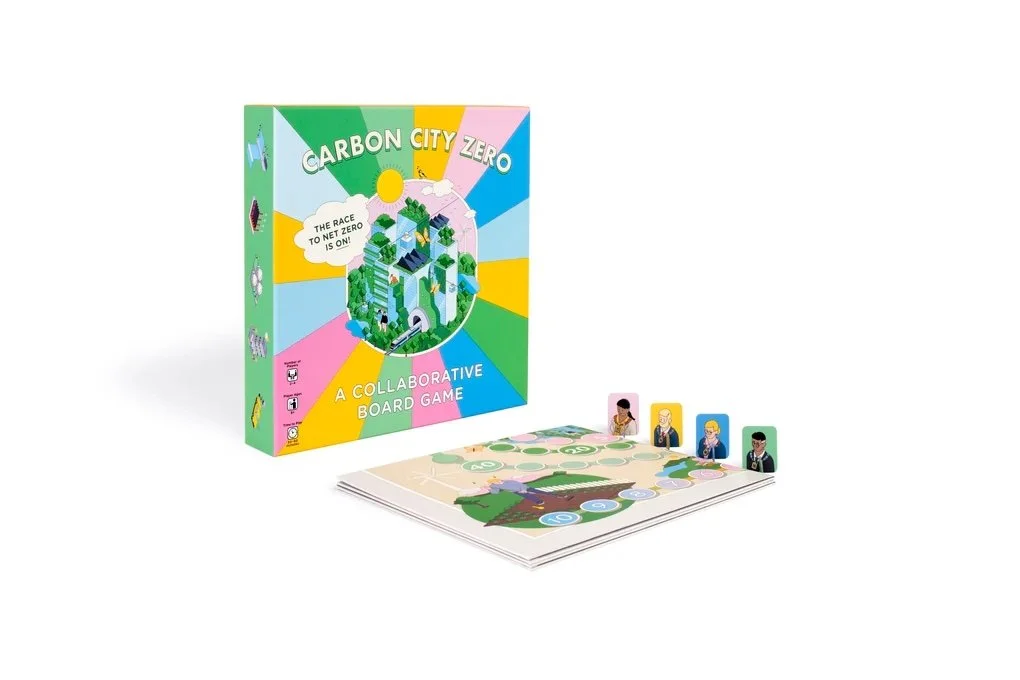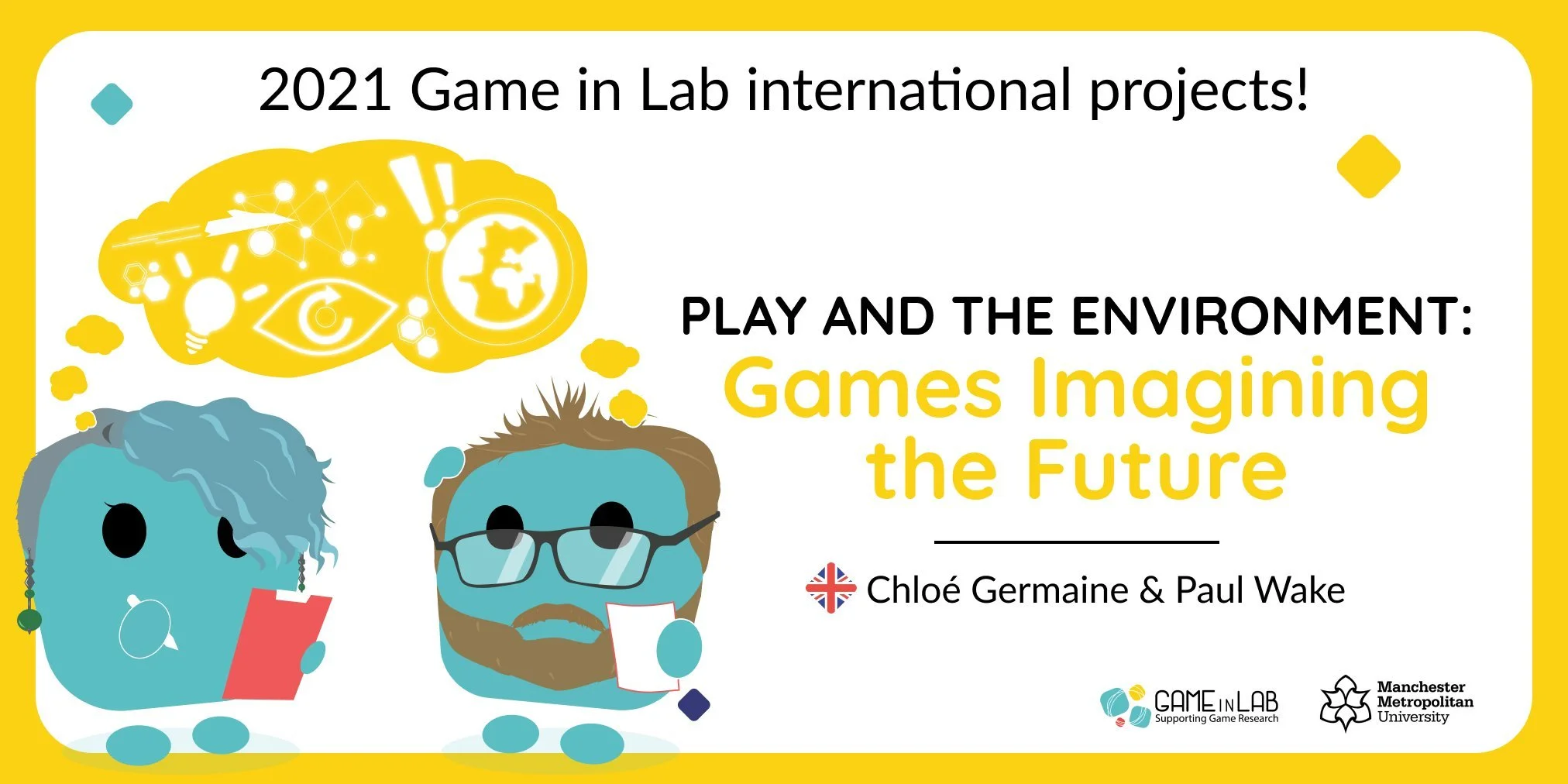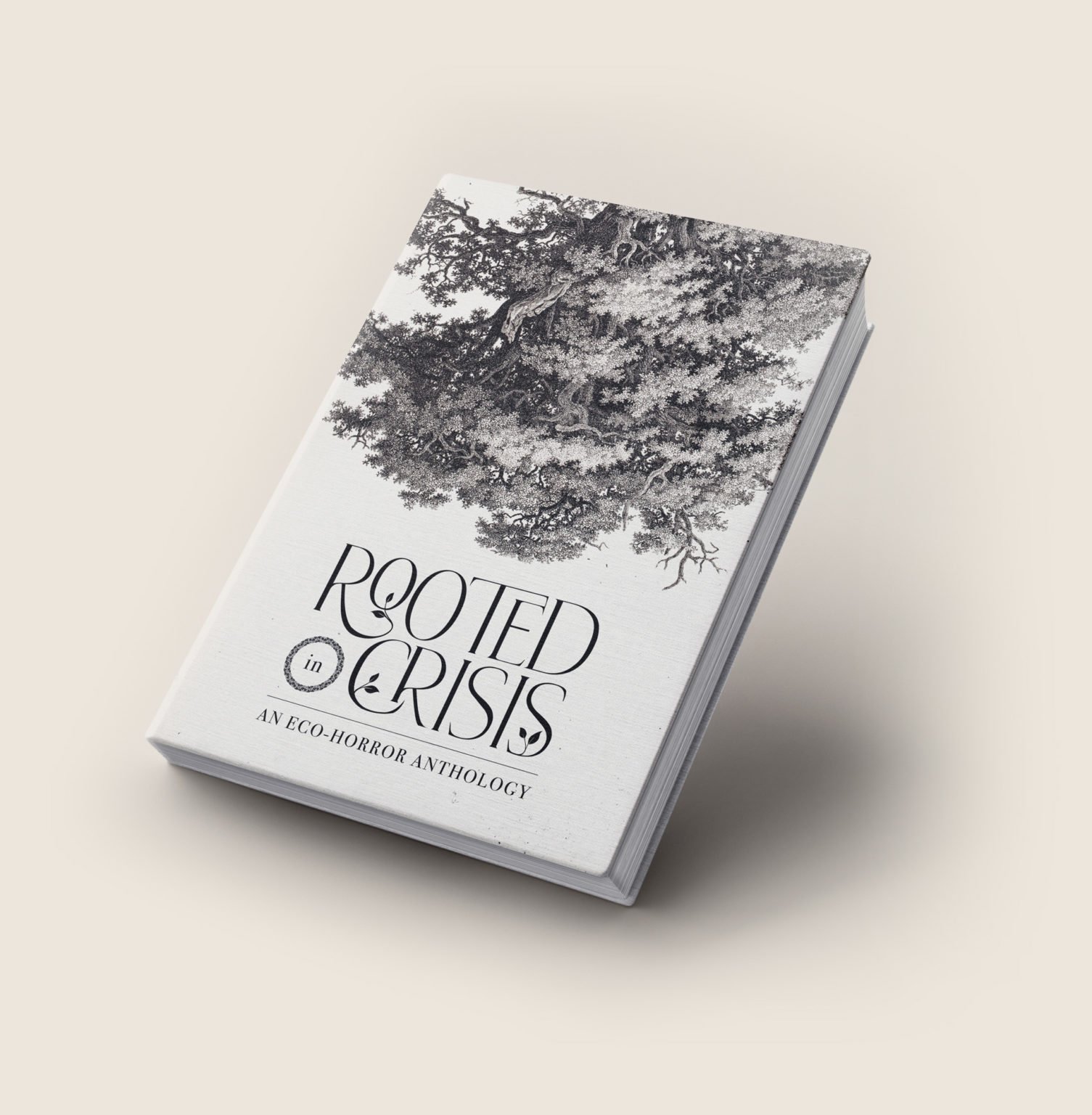Games and the Environment
Research on games and the environment at Manchester Game Centre cuts across disciplines and subject areas. We are concerned with the imbrication of games and climate change, considering both the environmental damage caused by games, game design, and game consumption, and the potential for games to make positive interventions through cultural communication, environmental education, and through the transformations of business and production practices. Our thematic leads are Chloé and Wahida.
Keywords
Games and Sustainability; the European Green Deal and Games; Games for Change; Games and Ecological Imagination; Ecogames; Games and Environmental Action; Games and Environmental Education; Game Design for Sustainability; Sustainable Development Goals (SDGs)
Staff and PGR students working in Games and the Environment
Benjamin Bowman is an internationally recognised scholar on young people’s climate activism, including the everyday action young people take on climate change.
Tom Brock is working on projects that examine esports’ economic and environmental sustainability.
Chloé Germaine co-leads research activities on the Horizon Europe/UKRI funded project, STRATEGIES: A Sustainable Transition for Europe’s Game Industries.
Rachel Gittins is a PhD student in Philosophy.
Wahida Khandker’s interest in games is centred on digital/visual arts, particularly in how these construct environments that offer alternative ways to conceptualise evolutionary processes and the more-than-human ‘environment’ in our age of ecological crisis.
Reiji Nagaoka is a Leverhulme Doctoral Scholar within the Leverhulme Unit for the Design for Cities of the Future (LUDEC). His thesis examines environmental cognition and behaviour in the collaborative design of speculative future cities.
Reuben Martens’ research examines the intersection of video game studies and energy humanities, analysing how digital games represent, mediate, and engage with energy systems, infrastructures, and imaginaries.
Emma Speakman is a PhD student researching ecohorror video games, focusing on how AAA horror games both perpetuate and combat ecophobia.
Paul Wake is Scientific lead for STRATEGIES. He is also the designer of the card game, Carbon City Zero.
STRATEGIES — A Sustainable Transition for Europe’s Game Industries — is a Horizon Europe and Innovate UK-funded project that supports Europe’s game industries in realising their potential as drivers of sustainable innovation, contributing to achieving the goals of the European Green Deal and delivering an economy that works for people. The project is co-led by Chloé Germaine (Communications Lead - Manchester Metropolitan University), Joost Raessens (Project Coordinator - Utrecht University) and Paul Wake (Scientific Lead - Manchester Metropolitan University). STRATEGIES is one of three Horizon-Europe funded projects within the programme “Cultural and creative industries for a sustainable climate transition.”
STRATEGIES is in its second year of funding and research is underway across all work packages. MGC researchers working on materials and emissions (WP3) released their scoping report in March this year and have been working to create an industry standard for measuring emissions with project partners, the Sustainable Games Alliance. Meanwhile, in Work Package 6 (Hacking Games), researchers have been doing workshops with academic partners to develop the first version of their carbon literacy training for game developers, which will be road-tested at the STRATEGIES summer school in Warsaw, in August 2025. Reports from Work Package 4 (Policy) and Work Package 5 (Game Design for Sustainability), coauthored by MGC researchers, will be released later this year.
Power Play – Energy, Infrastructure and Extraction in Video Games
Power Play investigates how video games represent energy infrastructure, resource extraction, and corporate oil influence. While many games rely on extracting and consuming natural resources as a core mechanic, few scholarly studies critically examine the environmental and political implications of these actions. This project, led by Reuben Martens, defines ‘energy games’ across gaming history (1980–present) to reveal how extraction-centric mechanics, narratives, and design choices shape cultural perceptions of fossil fuels. It combines gameplay analysis with archival research on oil-company involvement in game development to propose new ways game developers might rethink energy in gaming, encouraging more sustainable and critical approaches to digital play.
Carbon City Zero
Designed with the climate charity Possible, Carbon City Zero is a collaborative card game for 1-4 people (aged 8+), in which players develop a sustainable city. The game was released on Kickstarter in 2020, followed by a second (collaborative) edition, Carbon City Zero: World Edition, in 2021. Since its release on Kickstarter (where it raised over £30,000), Carbon City Zero has been made available as a free Print and Play game on PNP Arcade where it has been downloaded over 5000 times, has been translated into German, Dutch and Italian, and has been released commercially by Lawrence King Publishing (in the UK, Germany and the US). Recently, the game featured as part of the Carbon exhibition at the Science Gallery, Bengaluru, along with newly commissioned artwork depicting the specific climate challenges facing the majority world.
Games Imagining the Future: Game Hacking and System Change
‘Games Imagining the Future: Play and the Environment’ was carried out by staff and students at Manchester Metropolitan University between 2021 and 2022 and included co-researchers from a secondary school in the region. It was funded by Game in Lab and the Libellud Foundation (France). The project set out to investigate how board games might be used to support young people’s action on climate change. We used participatory methods to investigate how playful engagement with games could aid young people in articulating their ideas about climate change futures. Games Imagining the Future generated a research methodology, game hacking. This has since been developed through the STRATEGIES project and has broader applications in game design, games for climate action, and environmental education.
Rooted in Crisis TTRPG
Chloé has been working with a team of game designers, climate scientists and activists on a new creative project, Rooted in Crisis – an eco-horror Game Anthology for tabletop play. It is rules-light, focussed on storytelling and rooted in the award-winning horror game Trophy, designed by US Game Designer, Jesse Ross. The project was conceived through discussions between climate scientists, game studies academics, and game designers about the possibility of roleplaying games as a teaching tool in the environmental sciences, specifically to counter the feelings of powerlessness that come up when facing the climate crisis. The result is six diverse but interconnected games exploring different facets of humanity’s impact on the ecosystem. In her contribution, which frames the collection, ‘A History of the Future in Five Rings’, Chloé Germaine explores a meta-history of the future of climate crisis through a series of tipping points and moments of crisis. Rooted in Crisis will launch on Kickstarter in Autumn 2024.
Process Ecologies Network
The Process Ecologies Network (funded by the AHRC) is concerned with the challenge to think more holistically or ‘ecologically’ about the interdependencies of individual, society, and environment, as defined by Gregory Bateson’s Steps to an Ecology of Mind (1972) and Félix Guattari’s Three Ecologies (1989). Their work represents a significant intervention into current debates on the socio-political dimensions of modern environmental challenges that require fundamental changes to how we conceptualize and discuss our relationships with other species, our physical environment and how we live. With this ‘ecological’ approach in mind, the explores processual ideas of holism, cosmos, and environment through the facilitation of discussions between scholars across Philosophy, the Arts (including game art and design), and the humanities more broadly.
Landscapes of Post-War Infrastructure: Cooling Down
Manchester School of Architecture led an innovative research network as part of the major UKRI research project, ‘Landscape Decisions: Towards a new framework for using land assets’. This research aimed to understand the value of the landscapes created around infrastructure projects in post-war Britain. Together with new and existing partners from universities, industry, government and the cultural sector, through a series of meetings and events, the network developed guidelines to inform assessments of, and future decision-making about, landscapes of this type. To communicate this research to a wide audience, the AHRC-funded ‘Cooling Down’ project brought together researchers and game designers working with final-year MSA students in creating games that allow for a playful and immersive exploration of the work.






